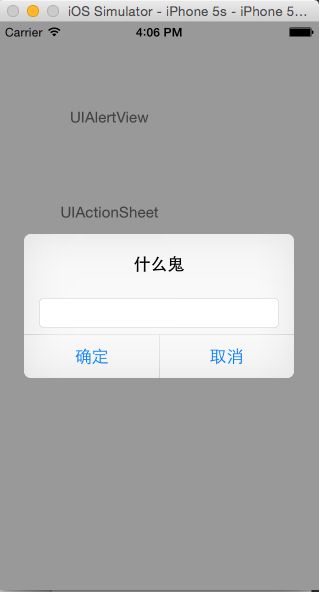- 100%全国产化时钟服务器、全国产化校时服务器、全国产化授时服务器
小歆884
服务器运维
全国产化时钟服务器是指采用国产芯片、操作系统、软件等关键技术和组件,实现从硬件到软件的自主可控,能够为各种网络设备和系统提供高精度时间同步服务的设备,以下将从其特点、应用领域、代表产品等维度展开介绍:计算机网络、计算机应用系统、流程控制管理系统、电力厂(站)和电网中心调度的时间统一系统及各种时间显示屏、电子商务系统、B2B网上系统以及数据库的保存及维护等系统、广电、金融、移动通信、石油、电力、交通
- 【机器学习】使用scikit-learn中的KNN包实现对鸢尾花数据集或者自定义数据集的的预测
加德霍克
机器学习人工智能python学习作业
一、KNN算法概念K最近邻(K-NearestNeighbor,KNN)分类算法是数据挖掘分类技术中最简单的方法之一,是著名的模式识别统计学方法,在机器学习分类算法中占有相当大的地位。它是一个理论上比较成熟的方法。既是最简单的机器学习算法之一,也是基于实例的学习方法中最基本的,又是最好的文本分类算法之一。二、对鸢尾花数据集进行预测1、代码示例:fromsklearn.datasetsimportl
- 树莓派pico搭建开发环境的报错及解决
2401_86161528
raspberrypipicolinuxc语言bash
1.更新cmake报错:--Usingthesingle-headercodefrompico/picotool/picotool-src/lib/nlohmann_json/single_include/CMakeDeprecationWarningatpico/pico-sdk/lib/mbedtls/CMakeLists.txt:23(cmake_minimum_required):Comp
- 【Flutter原理】平台视图系列问题分析
2401_84520401
程序员flutter
其实上面几种情况,通过之前的文章原理分析,也能知道结果,本文将通过实际案例来分析不同场景下的处理方式。widgettree中多个PlatformView不重叠话不多说我们首先来看同一个FlutterUI显示多个PlatformView,不重叠的情况是什么样的UI效果:通过LayoutInspect我们可以很清晰的看到,在HybridComposition模式下的PlatformView就是通过Fl
- 百万架构师第二十八课:RMI :分布式通讯框架RMI的原理|JavaGuide
后端
20180602-分布式通讯框架RMI的原理.mdTOC[TOC]什么是RPCRPC框架原理了解JavaRMI基于RMI时间RMI通讯原理分析实现自己的RPC框架什么是RPCRemoteprocedurecall远程过程调用集中式到分布式RMI(JRMP)/soap(webservice/axis/cxf)thrift/grpc/dubboRPC框架的不断演进,基于TCP/IP协议之上封装了特定的
- Golang-Context标准库源码深扒-简介&目录
动起点
golang源码深扒#开发语言golang后端
Context简介&目录简介以下来自官方文档的翻译:context包定义了Context类型,用于跨越API边界和进程传递截止时间、取消信号以及其他与请求相关的值。服务器接收到的请求应该创建一个Context,而发往服务器的调用应该接受一个Context。在它们之间的函数调用链必须传播Context,并可以选择用WithCancel、WithDeadline、WithTimeout或WithVal
- Redis之父学生时代发现的ping漏洞的源码分析
Redis的作者SalvatoreSanfilippo(网名antirez)在意大利西西里岛长大,虽然从小就接触计算机,也有一些编程经验,但在大学期间却选择了建筑学院,可能当时并没有打算走职业程序员的道路吧。然而antirez应该就属于老天爷赏饭的那类人,据说仅仅因为错把显卡买成了网卡,商家又不肯退货,他就放下游戏,拿起了C语言的教材。不久之后,antirez发现了一个ping的漏洞,非root用
- 单例模式 - 单例模式的实现与应用
w(゚Д゚)w吓洗宝宝了
C++从0到1单例模式javascript开发语言
引言单例模式(SingletonPattern)是设计模式中最简单且最常用的模式之一。它确保一个类只有一个实例,并提供一个全局访问点来访问该实例。单例模式常用于需要全局唯一对象的场景,如配置管理、日志记录、线程池等。本文将详细介绍单例模式的概念、实现方式以及在C++中的应用。单例模式的概念单例模式的核心思想是确保一个类只有一个实例,并提供一个全局访问点。这样做的目的是为了避免多个实例之间的冲突,同
- 用Java提取Word文档表格数据
Word文档作为一种广泛使用的文件格式,常常承载着丰富的表格信息,这些信息可能涉及到财务报表、项目规划、实验数据记录等多方面内容。将这些表格数据提取出来,能够方便进行数据分析以及内容再创作等场景。通过使用Java实现Word文档表格数据的提取,可以确保数据处理的一致性和准确性,同时大大减少所需的时间和成本。本文将介绍如何使用Java提取Word文档中的表格数据。用Java提取Word文档表格到文本
- Nexpose 7.3.2 for Linux & Windows - 漏洞扫描
漏洞
Nexpose7.3.2forLinux&Windows-漏洞扫描Rapid7on-premVulnerabilityManagement,releasedJan23,2025请访问原文链接:https://sysin.org/blog/nexpose-7/查看最新版。原创作品,转载请保留出处。作者主页:sysin.orgNexposeVulnerabilityScanner您的本地漏洞扫描程序搜
- “选择最佳数据库解决方案:MySQL、SQL Server 和 PostgreSQL 的比较与实际应用指南“
AMIOKATT
数据库mysqlpostgresql
目录典型中高端数据库服务器硬件配置CPU内存存储网络操作系统不同数据库系统在上述硬件上的性能表现MySQLPostgreSQLSQLServer具体硬件配置示例示例配置1:中小型Web应用示例配置2:复杂查询和事务处理示例配置3:企业级数据仓库和分析其他优化建议典型中高端数据库服务器硬件配置CPU型号:IntelXeon或AMDEPYC系列核心数:8至32个物理核心(多线程,通常2倍的逻辑核心)主
- 第84期 | GPTSecurity周报
aigc
GPTSecurity是一个涵盖了前沿学术研究和实践经验分享的社区,集成了生成预训练Transformer(GPT)、人工智能生成内容(AIGC)以及大语言模型(LLM)等安全领域应用的知识。在这里,您可以找到关于GPT/AIGC/LLM最新的研究论文、博客文章、实用的工具和预设指令(Prompts)。现为了更好地知悉近一周的贡献内容,现总结如下。SecurityPapers1.利用数据流路径对大
- linux开启samba共享文件夹
linux运维samba
一:安装samba#检查是否安装sambarpm-qisamba #如未安装,使用命令安装yuminstallsamba二:系统用户配置#添加系统用户useraddyouboshare#设置系统用户登陆密码passwdyouboshare#添加共享文件夹的用户(youboshare为要共享的用户)smbpasswd-ayouboshare三:配置共享文件夹1:添加共享文件夹并设置权限#创建共享文件
- Linux挂载samba共享文件夹
linux运维samba
一:场景⼀台Linux服务器⼀台Windows服务器,且开启了samba共享\xx.xx.xx.xx\share需求:将Linux服务器上指定目录的的⽂件存储⾄samba共享上二:实现1:安装CIFS客户端yuminstallcifs-utils2:实现挂载samba共享文件夹#创建挂载目录mkdir-p/data/share#挂载samba服务器#mount.cifs-ousername=mou
- Oracle之Merge into函数使用
limts
oracle数据库
Mergeinto函数为Oracle9i添加的语法,用来合并update和insert语句。所以也经常用于update语句的查询优化:一、语法格式:mergeintoAusingBon(A.a=B.a)--注意on后面带括号,且不能更新join的字段whenmatchedthenupdatesetA.b=B.bwhennotmatchedtheninsertA(A.a,A.b)values(B.a
- 282道Python面试八股文(答案、分析和深入提问)整理
ocean2103
面试题python面试开发语言
1.请解释Python中的模块和包。回答在Python中,模块和包是组织代码的重要工具,它们有助于代码的重用和结构化。模块(Module)模块是一个包含Python代码的文件,通常以.py作为文件扩展名。模块可以定义函数、类和变量,也可以包含可执行的代码。通过模块,可以将相关的功能分组到一个文件中,从而使得代码更加结构化和可维护。创建和使用模块创建模块:你可以创建一个Python文件(例如mymo
- 【Pip】深入理解 `requirements.txt` 文件:Python 项目依赖管理的核心工具
丶2136
#pippippython
目录引言1.什么是`requirements.txt`?2.创建`requirements.txt`文件2.1手动创建2.2使用`pipfreeze`命令2.3使用`pipreqs`生成2.4使用`pipenv`或`poetry`3.安装依赖4.版本管理与更新4.1版本管理的最佳实践5.依赖关系的管理5.1使用`pip-tools`5.2使用虚拟环境5.3使用Docker5.4`requireme
- WPS批量修改图片尺寸的JSA宏程序:最新版本WPS嵌入的宏编译器只支持JSA宏,要使用VBA宏需要重新安装VBA宏编译器插件,或者重新安装2021年之前的WPS版本。
@小张不嚣张
wps
从WPS2021版本开始,WPS正式支持使用JS作为宏语言,官方称JSA(报错时,用得就是这个名称),亦即JSforApplication的缩写。最新版本WPS嵌入的宏编译器只支持JSA宏,要使用VBA宏需要重新安装VBA宏编译器插件,或者重新安装2021年之前的WPS版本。1.WPS批量修改图片尺寸的VBA宏程序:Sub宏1()DimiOnErrorResumeNextFori=1ToActiv
- Pinterest打不开怎么办?先从这几个方面排查
跨境一哥
人工智能大数据物联网网络搜索引擎ip
Pinterest作为社交种草、推广营销和灵感分享的重要平台,是众多用户的每日必用工具。如果无法正常打开和使用,必然会有不小的负面影响。可以参考本文整理的可能原因和解决方法。一、可能原因1.网络连接问题移动数据网络信号弱、网络延迟严重、Wi-Fi信号不稳定、Pinterest联网权限未打开……这些都是导致Pinterest打不开的常见网络连接问题。2.浏览器问题使用的浏览器缓存文件太冗杂、Cook
- 未来商贸物流:人工智能与大数据的深度融合
呆码科技
临沂软件开发软件开发商贸物流科技人工智能
未来商贸物流:人工智能与大数据的深度融合在当今数字化浪潮汹涌澎湃的时代,商贸物流行业正站在变革的十字路口,而人工智能与大数据宛如一对闪耀的双子星,为其照亮前行的道路,深度融合之下,一个全新的未来画卷正徐徐展开。智能预测需求:精准把握市场脉搏传统的商贸物流往往依赖过往经验和粗略的市场调研来预估货物需求,这就如同在迷雾中摸索,充满不确定性。而如今,借助大数据的海量存储与超强分析能力,以及人工智能的深度
- 从文字到思维:呆马GPT在人工智能领域的创新之旅
呆码科技
gpt人工智能
引言生成式预训练变换器(GenerativePre-trainedTransformer,简称GPT)领域是人工智能技术中的一大革新。自OpenAI推出第一代GPT以来,该技术经历了多代发展,不断提升模型的规模、复杂度和智能化程度。GPT模型通过在大规模数据集上进行预训练,学习语言的统计规律和世界知识,然后在特定任务上进行微调,以适应不同的应用需求。GPT领域的发展推动了自然语言处理(NLP)技术
- Android Permission权限总结
通信赵彩香
android
1.权限Permission权限是安卓的一种安全机制,主要用来保护用户,应用的数据安全。1.1、版本差异Android权限机制有一个分水岭,就是Android6.0API23,对于危险权限的申请有所不同。Android开发头疼的一点就是适配兼容,说不定以后所有的权限都要动态申请!①targetSdkVersion<23&API<6.0:安装后就有权限,无需授权,无法取消授权②targetSdkVe
- 用友:看港口行业资产管理数智化变革
BIP数智供应链
笔记经验分享科技制造
随着经济和贸易的全球化发展,国际运输业快速发展,港口在国民经济中的贡献不断增大,港口的功能也由“运输中心”为代表的功能型港口发展成为“一体化港口供应链”为代表的综合型、绿色型港口。20世纪60年代前,世界经济正处于战后恢复阶段,社会生产力水平低下,国际贸易尚未形成规模。港口的主要功能是基本货物装卸、存储和转运,所使用的运输工具主要为5000吨至2万吨的杂货船。20世纪60-80年代,世界经济进入工
- Chrome插件:图片缩放为头像(128*128)
易林示
小工具chrome前端
前置条件:安装有chrome谷歌浏览器的电脑使用步骤:1.打开chrome扩展插件2.点击管理扩展程序3.加载已解压的扩展程序4.选择对应文件夹5.成功后会出现一个扩展小程序6.点击对应小程序7.使用小程序8.拖拽成功后会自动保存到下载代码:1.manifest.json{"manifest_version":3,"name":"图片缩放器","version":"1.0","descriptio
- “2022年江苏省职业院校技能大赛”高职组详解——Debian
你可知这世上再难遇我
2022全国职业技能大赛网络系统管理-Debiandebian运维网络系统管理
目录网络系统管理竞赛一、竞赛内容分布二、竞赛时间三、竞赛注意事项四、竞赛结果文件的提交第一部分:Linux网络服务一、竞赛简介二、初始化环境1.默认账号及默认密码2.操作系统配置三、项目任务描述1.拓扑图2.网络地址规划ISPSRVAppSrvSTORAGESRVROUTERSRVINSIDECLIOUTSIDECLI四、项目任务清单服务器IspSrv工作任务1.DHCP2.DNS3.CHRONY
- 2023年 全国职业院校技能大赛——网络系统管理:Windows & Linux 服务部署“答题卡“
你可知这世上再难遇我
windowslinux运维网络系统管理
目录服务部署答题卡(400)职业素养(25)Windows部分(150)Linux部分(225)服务部署答题卡(400)要求:使用下面指令查看其运行状态,并使用FSCapture截图软件进行截图,将输入结果的截图插入到文档中。职业素养(25)截图文档整洁规范,根据题目要求进行截图。整理赛位,工具、设备归位,保持赛后整洁有序。遵守赛项记录,听从裁判安排。Windows部分(150)基础配置任务查看D
- 原生FreeRTOS和ESP-IDF中FreeRTOS的区别
大专生学编程
FreeRTOS实时任务系统ESP32开发FreeRTOSESP-IDFESP32
原生FreeRTOS和ESP-IDF中FreeRTOS的区别文章目录原生FreeRTOS和ESP-IDF中FreeRTOS的区别1.定义和用途2.核心功能3.双核支持4.硬件支持5.扩展功能6.内存管理7.开发环境8.社区和支持总结原生的FreeRTOS和ESP-IDF中的FreeRTOS都是嵌入式系统中流行的实时操作系统(RTOS),但两者有显著区别,主要在于集成方式、功能扩展和优化等方面。以下
- 【考研】南邮历年复试上机试题目与题解
SpareLin
考研算法
【考研】南邮历年复试上机试题目与题解文章目录【考研】南邮历年复试上机试题目与题解个人题目难度评估历年上机题目PROB1002求最值问题PROB1003新对称素数问题PROB1004进制转换PROB1005涂色问题(待补)PROB1006最大公约数和最小公倍数PROB1007斐波那契数列PROB1008回文回文PROB1009单源最短路PROB1010萌萌摘苹果PROB1011忠诚的骑士PROB10
- Linux中的相关命令
向上_50358291
linux运维服务器
1、adbshelldumpsysactivitylru//查看最近的应用排列顺序2、adbshelldumpsysactivitytop//打印activity堆栈信息3、adbshelldumpsysactivity|grep“mFocuse”//只打印TopActivity信息4、adbshellamstart-ncom.example.myapplication/.MainActivity
- Android的权限部分详解
向上_50358291
权限android笔记
一、背景应用权限有助于保护对数据和操作的访问/执行权限,从而为保护用户隐私提供支持。如果应用必须访问受限数据或执行受限操作才能实现某个用例,请声明相应的权限。Android将权限分为不同的类型,包括安装时权限、运行时权限和特殊权限。每种权限类型都指明了当系统授予应用该权限后,应用可以访问的受限数据范围以及应用可以执行的受限操作范围。每项权限的保护级别取决于其类型以及对车机的影响。当然你也可以访问A
- Dom
周华华
JavaScripthtml
<!DOCTYPE html PUBLIC "-//W3C//DTD XHTML 1.0 Transitional//EN" "http://www.w3.org/TR/xhtml1/DTD/xhtml1-transitional.dtd">
<html xmlns="http://www.w3.org/1999/xhtml&q
- 【Spark九十六】RDD API之combineByKey
bit1129
spark
1. combineByKey函数的运行机制
RDD提供了很多针对元素类型为(K,V)的API,这些API封装在PairRDDFunctions类中,通过Scala隐式转换使用。这些API实现上是借助于combineByKey实现的。combineByKey函数本身也是RDD开放给Spark开发人员使用的API之一
首先看一下combineByKey的方法说明:
- msyql设置密码报错:ERROR 1372 (HY000): 解决方法详解
daizj
mysql设置密码
MySql给用户设置权限同时指定访问密码时,会提示如下错误:
ERROR 1372 (HY000): Password hash should be a 41-digit hexadecimal number;
问题原因:你输入的密码是明文。不允许这么输入。
解决办法:用select password('你想输入的密码');查询出你的密码对应的字符串,
然后
- 路漫漫其修远兮 吾将上下而求索
周凡杨
学习 思索
王国维在他的《人间词话》中曾经概括了为学的三种境界古今之成大事业、大学问者,罔不经过三种之境界。“昨夜西风凋碧树。独上高楼,望尽天涯路。”此第一境界也。“衣带渐宽终不悔,为伊消得人憔悴。”此第二境界也。“众里寻他千百度,蓦然回首,那人却在灯火阑珊处。”此第三境界也。学习技术,这也是你必须经历的三种境界。第一层境界是说,学习的路是漫漫的,你必须做好充分的思想准备,如果半途而废还不如不要开始。这里,注
- Hadoop(二)对话单的操作
朱辉辉33
hadoop
Debug:
1、
A = LOAD '/user/hue/task.txt' USING PigStorage(' ')
AS (col1,col2,col3);
DUMP A;
//输出结果前几行示例:
(>ggsnPDPRecord(21),,)
(-->recordType(0),,)
(-->networkInitiation(1),,)
- web报表工具FineReport常用函数的用法总结(日期和时间函数)
老A不折腾
finereport报表工具web开发
web报表工具FineReport常用函数的用法总结(日期和时间函数)
说明:凡函数中以日期作为参数因子的,其中日期的形式都必须是yy/mm/dd。而且必须用英文环境下双引号(" ")引用。
DATE
DATE(year,month,day):返回一个表示某一特定日期的系列数。
Year:代表年,可为一到四位数。
Month:代表月份。
- c++ 宏定义中的##操作符
墙头上一根草
C++
#与##在宏定义中的--宏展开 #include <stdio.h> #define f(a,b) a##b #define g(a) #a #define h(a) g(a) int main() { &nbs
- 分析Spring源代码之,DI的实现
aijuans
springDI现源代码
(转)
分析Spring源代码之,DI的实现
2012/1/3 by tony
接着上次的讲,以下这个sample
[java]
view plain
copy
print
- for循环的进化
alxw4616
JavaScript
// for循环的进化
// 菜鸟
for (var i = 0; i < Things.length ; i++) {
// Things[i]
}
// 老鸟
for (var i = 0, len = Things.length; i < len; i++) {
// Things[i]
}
// 大师
for (var i = Things.le
- 网络编程Socket和ServerSocket简单的使用
百合不是茶
网络编程基础IP地址端口
网络编程;TCP/IP协议
网络:实现计算机之间的信息共享,数据资源的交换
协议:数据交换需要遵守的一种协议,按照约定的数据格式等写出去
端口:用于计算机之间的通信
每运行一个程序,系统会分配一个编号给该程序,作为和外界交换数据的唯一标识
0~65535
查看被使用的
- JDK1.5 生产消费者
bijian1013
javathread生产消费者java多线程
ArrayBlockingQueue:
一个由数组支持的有界阻塞队列。此队列按 FIFO(先进先出)原则对元素进行排序。队列的头部 是在队列中存在时间最长的元素。队列的尾部 是在队列中存在时间最短的元素。新元素插入到队列的尾部,队列检索操作则是从队列头部开始获得元素。
ArrayBlockingQueue的常用方法:
- JAVA版身份证获取性别、出生日期及年龄
bijian1013
java性别出生日期年龄
工作中需要根据身份证获取性别、出生日期及年龄,且要还要支持15位长度的身份证号码,网上搜索了一下,经过测试好像多少存在点问题,干脆自已写一个。
CertificateNo.java
package com.bijian.study;
import java.util.Calendar;
import
- 【Java范型六】范型与枚举
bit1129
java
首先,枚举类型的定义不能带有类型参数,所以,不能把枚举类型定义为范型枚举类,例如下面的枚举类定义是有编译错的
public enum EnumGenerics<T> { //编译错,提示枚举不能带有范型参数
OK, ERROR;
public <T> T get(T type) {
return null;
- 【Nginx五】Nginx常用日志格式含义
bit1129
nginx
1. log_format
1.1 log_format指令用于指定日志的格式,格式:
log_format name(格式名称) type(格式样式)
1.2 如下是一个常用的Nginx日志格式:
log_format main '[$time_local]|$request_time|$status|$body_bytes
- Lua 语言 15 分钟快速入门
ronin47
lua 基础
-
-
单行注释
-
-
[[
[多行注释]
-
-
]]
-
-
-
-
-
-
-
-
-
-
-
1.
变量 & 控制流
-
-
-
-
-
-
-
-
-
-
num
=
23
-
-
数字都是双精度
str
=
'aspythonstring'
- java-35.求一个矩阵中最大的二维矩阵 ( 元素和最大 )
bylijinnan
java
the idea is from:
http://blog.csdn.net/zhanxinhang/article/details/6731134
public class MaxSubMatrix {
/**see http://blog.csdn.net/zhanxinhang/article/details/6731134
* Q35
求一个矩阵中最大的二维
- mongoDB文档型数据库特点
开窍的石头
mongoDB文档型数据库特点
MongoDD: 文档型数据库存储的是Bson文档-->json的二进制
特点:内部是执行引擎是js解释器,把文档转成Bson结构,在查询时转换成js对象。
mongoDB传统型数据库对比
传统类型数据库:结构化数据,定好了表结构后每一个内容符合表结构的。也就是说每一行每一列的数据都是一样的
文档型数据库:不用定好数据结构,
- [毕业季节]欢迎广大毕业生加入JAVA程序员的行列
comsci
java
一年一度的毕业季来临了。。。。。。。。
正在投简历的学弟学妹们。。。如果觉得学校推荐的单位和公司不适合自己的兴趣和专业,可以考虑来我们软件行业,做一名职业程序员。。。
软件行业的开发工具中,对初学者最友好的就是JAVA语言了,网络上不仅仅有大量的
- PHP操作Excel – PHPExcel 基本用法详解
cuiyadll
PHPExcel
导出excel属性设置//Include classrequire_once('Classes/PHPExcel.php');require_once('Classes/PHPExcel/Writer/Excel2007.php');$objPHPExcel = new PHPExcel();//Set properties 设置文件属性$objPHPExcel->getProperties
- IBM Webshpere MQ Client User Issue (MCAUSER)
darrenzhu
IBMjmsuserMQMCAUSER
IBM MQ JMS Client去连接远端MQ Server的时候,需要提供User和Password吗?
答案是根据情况而定,取决于所定义的Channel里面的属性Message channel agent user identifier (MCAUSER)的设置。
http://stackoverflow.com/questions/20209429/how-mca-user-i
- 网线的接法
dcj3sjt126com
一、PC连HUB (直连线)A端:(标准568B):白橙,橙,白绿,蓝,白蓝,绿,白棕,棕。 B端:(标准568B):白橙,橙,白绿,蓝,白蓝,绿,白棕,棕。 二、PC连PC (交叉线)A端:(568A): 白绿,绿,白橙,蓝,白蓝,橙,白棕,棕; B端:(标准568B):白橙,橙,白绿,蓝,白蓝,绿,白棕,棕。 三、HUB连HUB&nb
- Vimium插件让键盘党像操作Vim一样操作Chrome
dcj3sjt126com
chromevim
什么是键盘党?
键盘党是指尽可能将所有电脑操作用键盘来完成,而不去动鼠标的人。鼠标应该说是新手们的最爱,很直观,指哪点哪,很听话!不过常常使用电脑的人,如果一直使用鼠标的话,手会发酸,因为操作鼠标的时候,手臂不是在一个自然的状态,臂肌会处于绷紧状态。而使用键盘则双手是放松状态,只有手指在动。而且尽量少的从鼠标移动到键盘来回操作,也省不少事。
在chrome里安装 vimium 插件
- MongoDB查询(2)——数组查询[六]
eksliang
mongodbMongoDB查询数组
MongoDB查询数组
转载请出自出处:http://eksliang.iteye.com/blog/2177292 一、概述
MongoDB查询数组与查询标量值是一样的,例如,有一个水果列表,如下所示:
> db.food.find()
{ "_id" : "001", "fruits" : [ "苹
- cordova读写文件(1)
gundumw100
JavaScriptCordova
使用cordova可以很方便的在手机sdcard中读写文件。
首先需要安装cordova插件:file
命令为:
cordova plugin add org.apache.cordova.file
然后就可以读写文件了,这里我先是写入一个文件,具体的JS代码为:
var datas=null;//datas need write
var directory=&
- HTML5 FormData 进行文件jquery ajax 上传 到又拍云
ileson
jqueryAjaxhtml5FormData
html5 新东西:FormData 可以提交二进制数据。
页面test.html
<!DOCTYPE>
<html>
<head>
<title> formdata file jquery ajax upload</title>
</head>
<body>
<
- swift appearanceWhenContainedIn:(version1.2 xcode6.4)
啸笑天
version
swift1.2中没有oc中对应的方法:
+ (instancetype)appearanceWhenContainedIn:(Class <UIAppearanceContainer>)ContainerClass, ... NS_REQUIRES_NIL_TERMINATION;
解决方法:
在swift项目中新建oc类如下:
#import &
- java实现SMTP邮件服务器
macroli
java编程
电子邮件传递可以由多种协议来实现。目前,在Internet 网上最流行的三种电子邮件协议是SMTP、POP3 和 IMAP,下面分别简单介绍。
◆ SMTP 协议
简单邮件传输协议(Simple Mail Transfer Protocol,SMTP)是一个运行在TCP/IP之上的协议,用它发送和接收电子邮件。SMTP 服务器在默认端口25上监听。SMTP客户使用一组简单的、基于文本的
- mongodb group by having where 查询sql
qiaolevip
每天进步一点点学习永无止境mongo纵观千象
SELECT cust_id,
SUM(price) as total
FROM orders
WHERE status = 'A'
GROUP BY cust_id
HAVING total > 250
db.orders.aggregate( [
{ $match: { status: 'A' } },
{
$group: {
- Struts2 Pojo(六)
Luob.
POJOstrust2
注意:附件中有完整案例
1.采用POJO对象的方法进行赋值和传值
2.web配置
<?xml version="1.0" encoding="UTF-8"?>
<web-app version="2.5"
xmlns="http://java.sun.com/xml/ns/javaee&q
- struts2步骤
wuai
struts
1、添加jar包
2、在web.xml中配置过滤器
<filter>
<filter-name>struts2</filter-name>
<filter-class>org.apache.st



